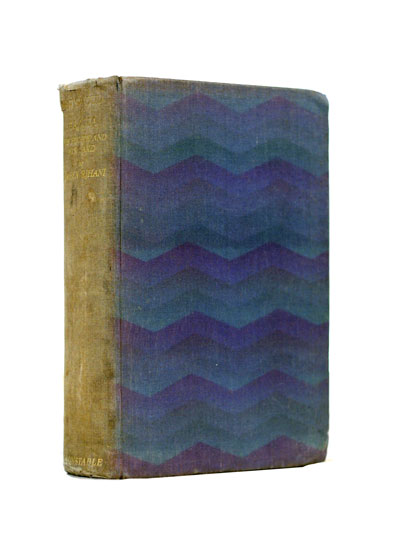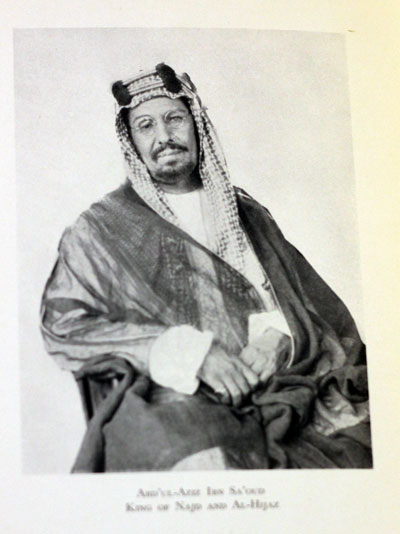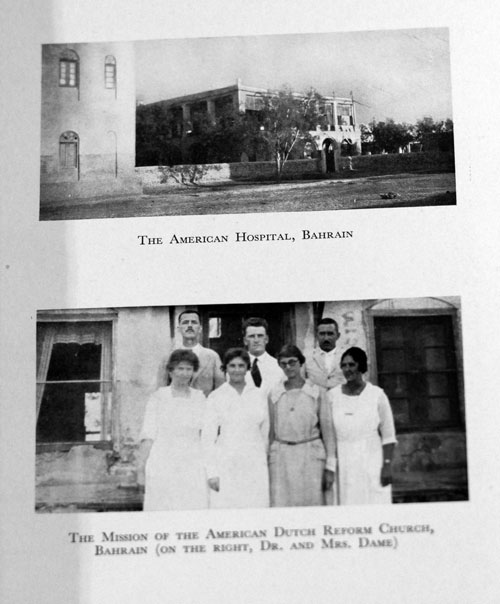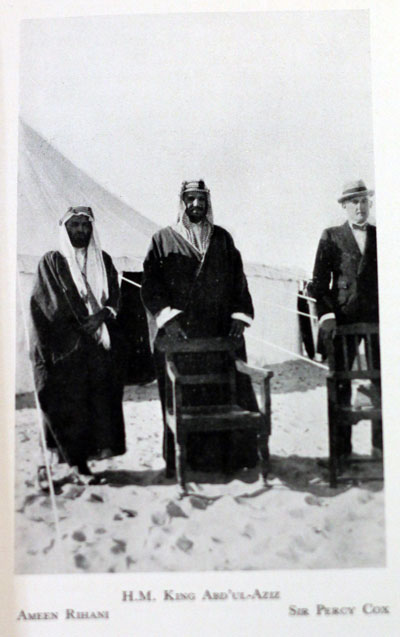An early biography of Ibn Saud, the founder of modern Saudi Arabia, by a Lebanese-American writer who had close contact with the Saudi family. Includes numerous black-and-white photographs.
Contents include:
1. The Kingdom of Najd and Dependencies
2. A Genealogical Table of Aal Sa’oud
3. In Baghdad
4. In Bahrain
5. With the Sultan on the March
6. Across the Desert
7. Ar-Riyadh
8. The Sa’ouds and the Rashids at Play
9. The Bedu of Najd
10. The Ulema of Najd
11. The Rule of Ibn Sa’oud
12. Ibn Wahhab and Wahhabism
etc
About the author (from Wikipedia):
Ameen Rihani (1876 – 1940), was a Lebanese Arab-American writer, intellectual and political activist. He was also a major figure in the mahjar literary movement developed by Arab emigrants in North America, and an early theorist of Arab nationalism. He became an American citizen in 1901.
During the period between 1910 and 1922 Rihani became remarkably involved in the literary life while continuing to pursue productive political engagements. On the literary level, he continued writing and publishing in English and Arabic. Among the books that he published during that period were: The Lily of A-Ghor, a novel in English, and (rewritten) in Arabic, describing the oppression of the woman (represented by Mariam) during the Ottoman Empire, Jihan, a novel in English about the role of Middle eastern women during WWI, The Luzumiyat, translation of the Arabic poetry of Al-Ma’arri into English with Rihani’s introduction highlighting the significance of this poet to the Western mind, The Path of Vision, essays in English on East and West, A Chant of Mystics, poetry in English, The Descent of Bolchevism, political analysis in English on the Arab origins of the socialist movements, New Volumes of Ar-Rihaniyyaat, philosophic and social essays in Arabic.
In 1916 Ameen married Bertha Case, an American artist, who was part of the Matisse, Picasso, Cézanne and Derain group in Paris, and the Midi, and joined them in exhibiting her work at the Salon de Mai. Bertha visited Lebanon in 1953 (thirteen years after Ameen’s death), staying with the family of Rihani’s brother, Albert, in Freike. On July 29, 1970, Bertha died in New York at the age of 91. She had requested that her body be cremated and that her ashes be sent to Freike to be buried next to her husband’s.
In 1922 Rihani traveled throughout Arabia, meeting and getting better acquainted with its rulers. He was the only traveler at that time, European or Arab, to have covered that whole territory in one trip. He acquired an invaluable and first-hand account of the character, vision and belief of each of these rulers. He developed a friendship with Ibn Saud, ruler of the desert kingdom that would soon become the Kingdom of Saudi Arabia. Between 1924 and 1932 he wrote and published six books in English and Arabic related to the three trips he made to Arabia. These accounts were a considerable critical and public success. London publishers released a circular on Rihani’s travel books as having been best sellers. He is considered by some scholars as a major figure in the intellectual development of Arab nationalism. In his writings on national issues, he emphasized the importance of a secular state and a secular education pointing that there must be no minorities or majorities, but only equal citizens.






